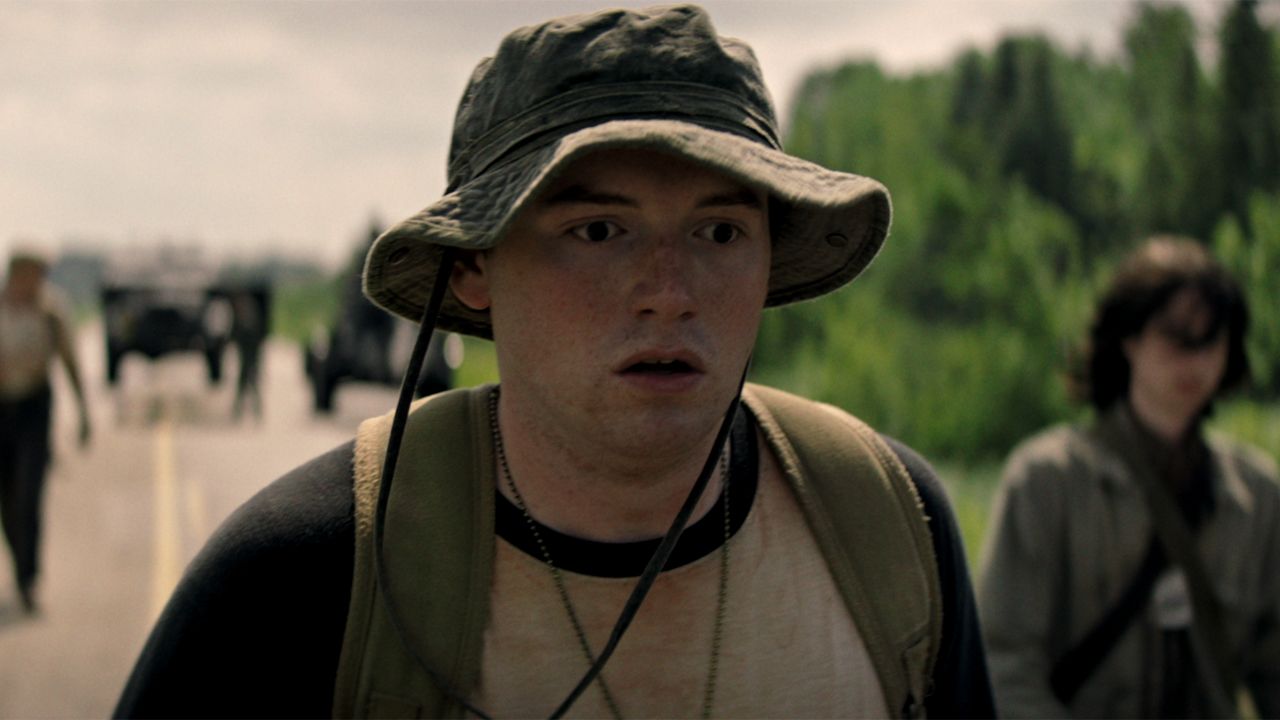
Even though the next Hunger Games movie isn’t due until next fall, Hollywood is having a moment with dystopian book adaptations – especially of the Stephen King variety. As someone who’s only really been exposed to the King of Horror through his more straight-laced horror properties like It, Carrie and The Shining, I’ve been intrigued by his entries into the genre, through 2025 movie releases, The Long Walk and The Running Man – the latter coming out in November. I’m a longtime fan of the Hunger Games movies after being into the books first, most of which The Long Walk director Francis Lawrence helmed, so I thought I’d be able to stomach The Long Walk easily.
Wow, I was wrong. It’s no secret Stephen King is hardcore, and I’d heard The Long Walk novel was a particularly rough one, even for King’s biggest fans, but now that I’ve seen the movie critics are praising, boy, do I get it. Let’s talk about my experience.
This article contains some spoilers from The Long Walk.
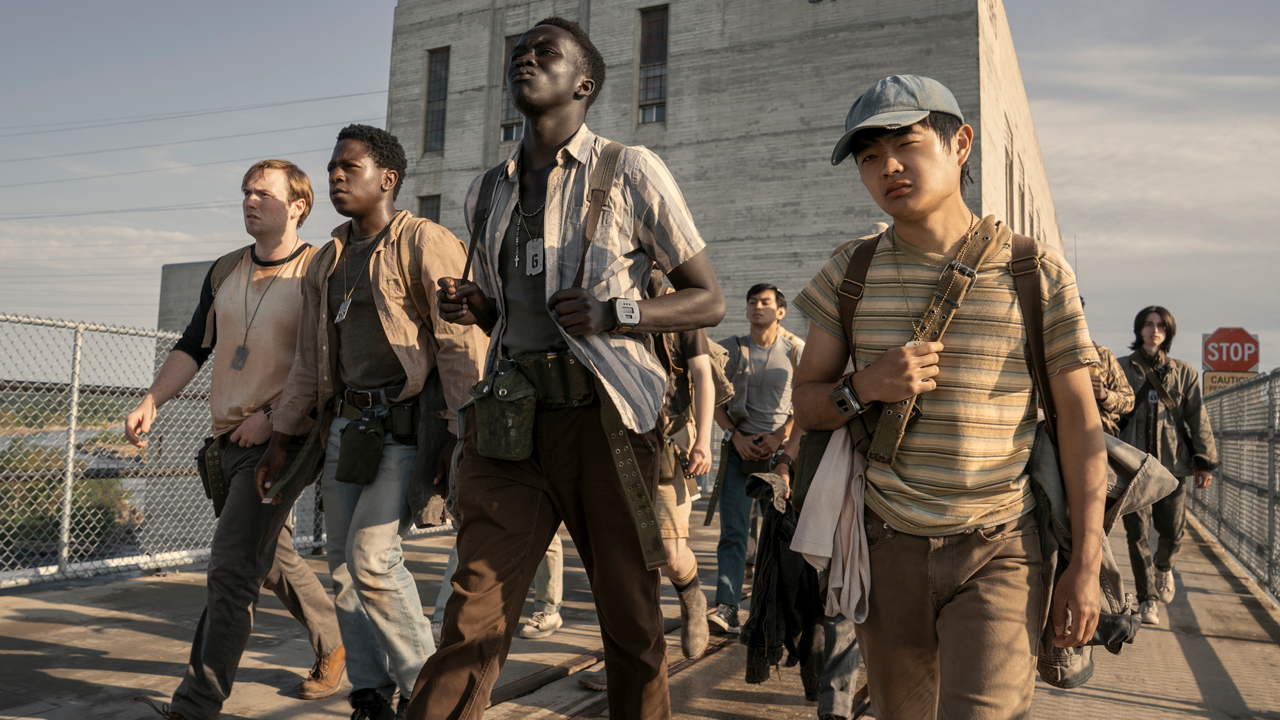
As I Predicted, There's Shared DNA Between The Long Walk And The Hunger Games
The Long Walk movie is based on a 1979 book from Stephen King, but I’d never heard of it until the movie was being developed. Now that I’ve seen the movie, I have to wonder how much Hunger Games author Suzanne Collins was inspired by it (if at all), because I could definitely see some parallels between both dystopian books. Both take place in a nondescript future United States where the government has resorted to watching kids fight to the death for entertainment amidst a broken system. But, I’ll give it to King, he thought up a much more messed up premise.
The Long Walk has a much tighter storyline than The Hunger Games series. Rather than introducing all sorts of lore for the state of the world (in the movie anyway), the story begins and ends during the titular competition. I found it really interesting that it didn’t actually need to be explained to me what was going on to fill in the blanks for myself, and I was even more horrified by the world in The Long Walk because it was devoid of the YA science fiction story elements that I realize now kind of take your attention away from the core of both books, which is children being killed off for show. Both are excellent allegories for oppression, economic inequality and rebellion, but The Long Walk takes a much more intense approach to things.
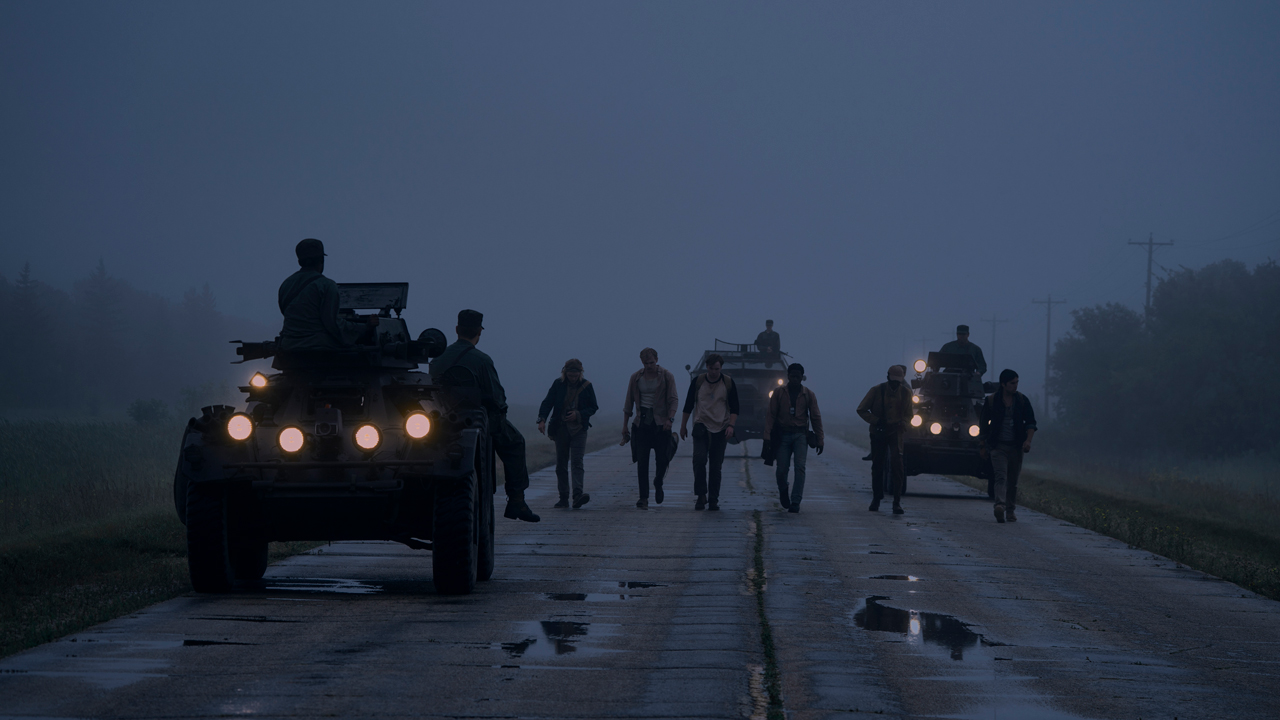
The Long Walk Is A LOT More Brutal Than The YA Franchise
There’s a lot of theatrics to The Hunger Games that reeled me in when I was reading it in middle school, and kind of masked some of the political allegory from someone who wasn’t necessarily seeking one - like the love triangle between Katniss, Peeta and Gale, or how its protagonist is this really brave young girl who risks her life for her sister, and is thrust into having to survive a glitzy reality TV show as the ultimate underdog of the competition. There’s fun things like her having to survive in the wilderness, use her archery skills, and there being these genetically modified creatures to up the stakes for the final contestants standing.
There’s zero fluff or glamour to The Long Walk. It is what it says. It follows 50 boys who win this lottery system where they have the chance at riches and a “wish” if they are the last one standing. The entire film takes place during this walk, where they must keep at a speed of three miles per hour the whole time or they will be shot and killed. It’s especially inhumane and grueling, because if they need to go to the bathroom they have to do it while walking. If they get injured or sick, they have to suck it up, or die. They cannot hide, or take a break or wait out the competition like those in The Hunger Games. You’re in it the whole time with them, and I was absolutely on edge the whole movie.
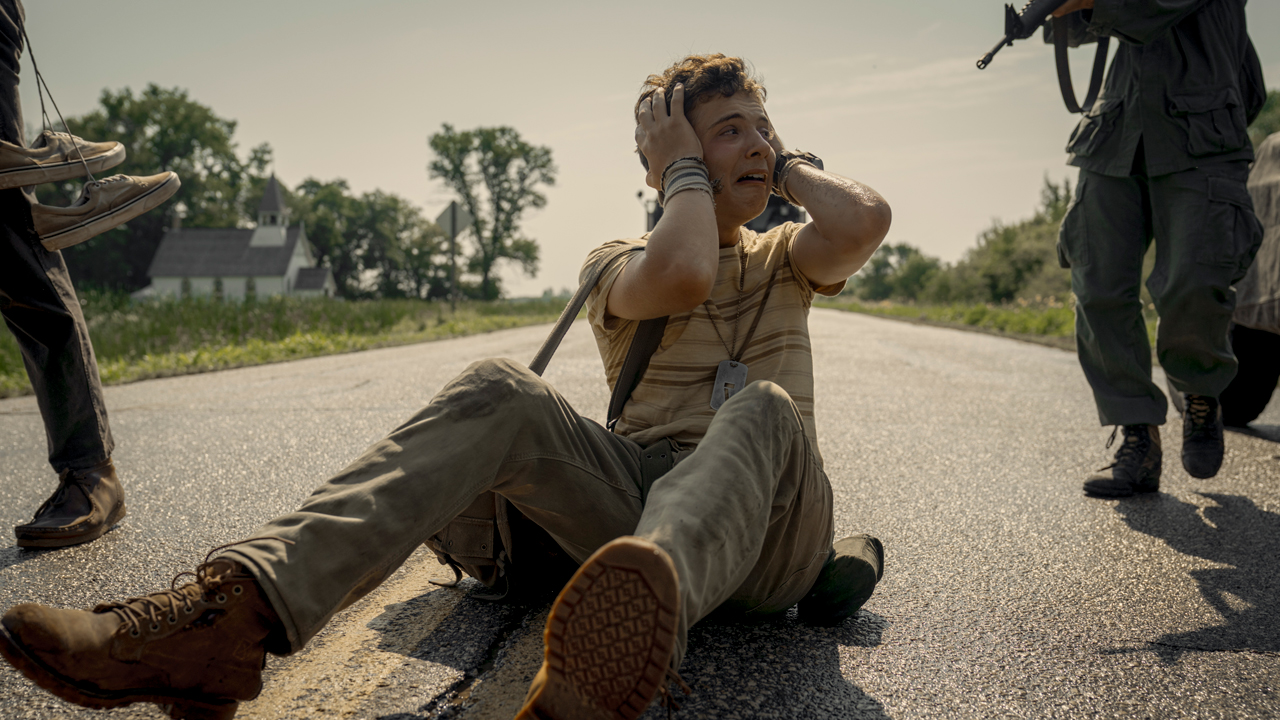
The Kills Hit A Lot Harder In The Long Walk, And I Was Not OK
Francis Lawrence has talked about why The Long Walk deserves to be rated R. The director felt it was important that the audience feels “the degradation emotionally, psychologically, physically” and “retain” the intensity of the book in order to keep the themes of the novel and be “truthful” to it. All the Hunger Games movies have been PG-13, and I felt the difference when watching The Long Walk.
The first kill in The Long Walk really sets the stage for how gruesome the movie is, as one of the youngest-looking characters Curley, gets a really bad charley horse and he’s shot in the head when he can’t keep his pace up. And, the camera doesn’t pan away from his brains getting blown off. You see the bloodshed in front of your eyes, and the movie never backs off as characters get killed for twisting their foot and walking on it, or being shot while trying to take a poop or falling asleep in the walk that ends up spanning about a week and over 300 miles. Much like the characters in the movie, I found myself unable to look at each kill and became terrified at the cost of actually being the last one standing.
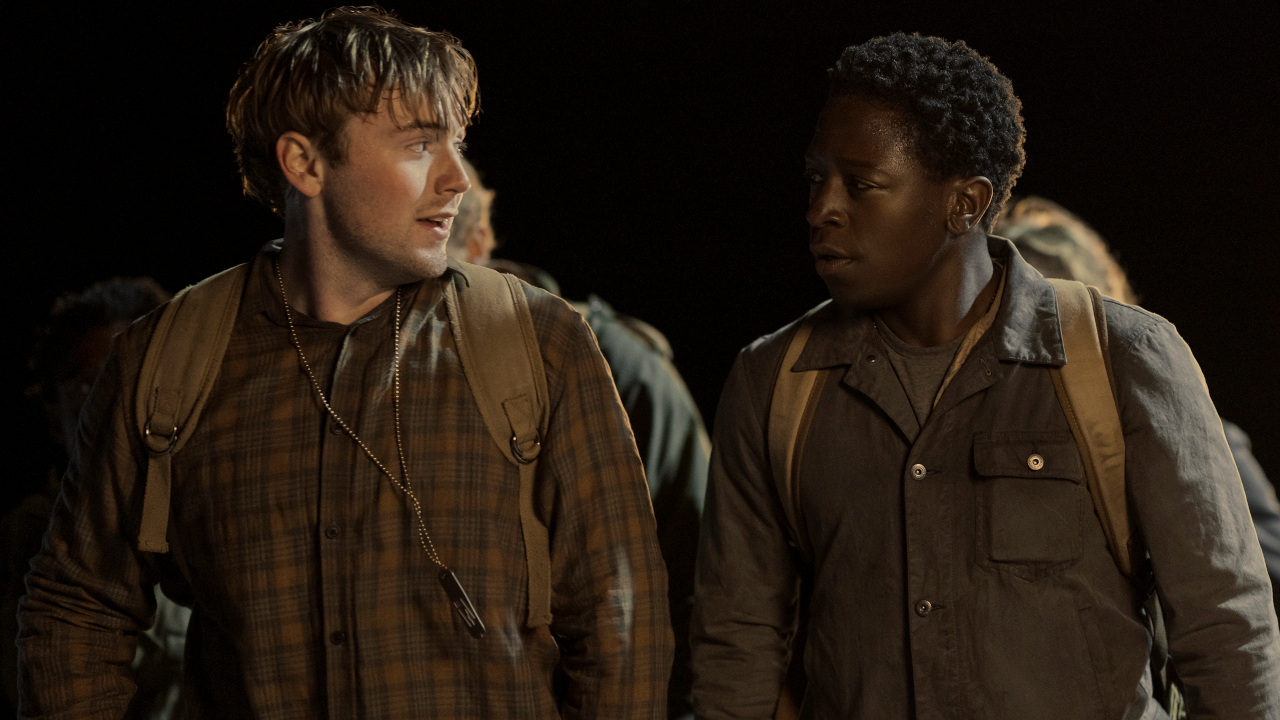
The Relationship Between Peter And Raymond Ultimately Kept Me Going
The saving grace of the movie that made it all worth it is the friendship that develops between some of the guys on the walk, particularly between Cooper Hoffman’s Raymond Garraty and David Jonsson’s Peter McVries. While we learn that one of them is hellbent on using his “wish” on revenge, another one suggests using it to make the world a better place. It’s interesting to see optimism and cynicism literally in a race to the death within these character’s arcs, and it helped offset all the terror that goes on throughout the walk.
I was surprised to read the ending is actually different from the book, because I thought it was perfect and drilled down its themes in the best way. I’m happy I went to see the movie even though it drove up my anxiety and gave me disturbing nightmares, and found the filmmaking to be unbelievably effective and raw, but my goodness, was I not prepared for the kind of bleak dystopia Stephen King thought up with The Long Walk going into it. Enter at your own caution fellow Hunger Games fans!







